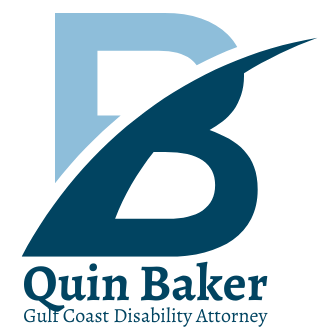Can You Obtain Social Security Disability Benefits in Pensacola After Suffering a Stroke?
In Pensacola, Florida, life moves at its own unique pace. But for those who have suffered a stroke, the rhythm of daily life can be abruptly disrupted. The physical, cognitive, and emotional challenges that follow a cerebrovascular accident can make even the most routine tasks feel insurmountable. And for many, the inability to work and earn a living adds financial strain to an already difficult situation.
If you or a loved one has experienced a stroke in Pensacola, it’s crucial to understand the resources available to help you navigate this challenging time. One potential lifeline is Social Security Disability Insurance (SSDI). This federal program provides financial assistance to those who are unable to work due to a severe medical condition. However, the road to securing these benefits can be complex and confusing.
Understanding Stroke and Its Impact
Before we dive into the specifics of SSDI, let’s take a moment to understand the profound impact a stroke can have on an individual’s life. A stroke occurs when the blood supply to the brain is disrupted, either by a blockage (ischemic stroke) or a rupture (hemorrhagic stroke). The resulting damage to brain cells can lead to a wide range of symptoms, depending on the part of the brain affected.
Common stroke sequelae include:
- Paralysis or weakness on one side of the body (hemiparesis).
- Difficulty with speech or language (aphasia).
- Cognitive impairment affecting memory, attention, or decision-making.
- Loss of coordination or balance (ataxia).
- Sensory disturbances, such as numbness or tingling.
- Emotional changes, such as depression or mood swings.
These effects can linger long after the initial stroke, making it difficult or impossible to return to work. In fact, stroke is a leading cause of long-term disability in the United States. For Pensacola residents facing these challenges, SSDI can provide a crucial financial safety net.
Qualifying for SSDI After a Stroke
To be eligible for SSDI, you must first meet the Social Security Administration’s (SSA) definition of disability. This means your stroke must be severe enough to significantly limit your ability to perform basic work activities for at least 12 months.
The SSA evaluates stroke-related impairments using the criteria in its “Blue Book” listing of disabling conditions. Specifically, Section 11.04 covers central nervous system vascular accidents (stroke). To qualify under this listing, you must demonstrate one of the following:
- Persistent disorganization of motor function in two extremities, resulting in sustained disturbance of gross and dexterous movements, or gait and station, for at least three months post-stroke.
- Marked limitation in physical functioning and in one of the following areas of mental functioning, both persisting for at least three months post-stroke:
- Understanding, remembering, or applying information.
- Interacting with others.
- Concentrating, persisting, or maintaining pace.
- Adapting or managing oneself.
If your stroke-related impairments don’t meet these specific criteria, you may still qualify for SSDI if your limitations are severe enough to prevent you from sustaining any type of substantial gainful employment. The SSA will consider your age, education, past work experience, and transferable skills in making this determination.
Gathering Evidence for Your SSDI Claim
Medical evidence is the cornerstone of a successful SSDI application. You’ll need to provide detailed records documenting your stroke diagnosis, treatment, and ongoing limitations. This may include:
- Hospital records from the initial stroke event.
- Brain imaging results (CT scans or MRIs).
- Reports from your neurologist or other treating physicians.
- Documentation of physical therapy, occupational therapy, or speech therapy.
- Results of cognitive or neuropsychological testing.
It’s important to be as thorough as possible in gathering this evidence. Incomplete records are a common reason for SSDI denials. If you’re unsure what documents you need, consulting with an experienced disability lawyer like Quin Baker can be invaluable.
The SSDI Application Process in Pensacola
Once you have your medical evidence in order, you’re ready to begin the SSDI application process. Pensacola residents have several options for applying:
- Online at the Social Security website (ssa.gov)
- By phone at 1-800-772-1213
- In person at the Pensacola Social Security office:
411 W Garden St
Pensacola, FL 32502
When filling out the application, be prepared to provide detailed information about your work history, education, and medical condition. It’s essential to be honest and accurate in your responses.
After submitting your application, the SSA will review your case to determine if you meet the basic eligibility requirements. If you do, your file will be sent to the Florida Division of Disability Determinations (DDD) for a medical review. The DDD may request additional information or even schedule you for an independent medical examination.
The SSDI decision process can take several months. If your application is approved, you’ll receive a notice detailing your benefit amount and when payments will begin. If you’re denied, don’t panic – you have the right to appeal the decision.
Navigating the Appeals Process
Receiving a denial notice can be disheartening, but it’s not the end of the road. In fact, the majority of SSDI applications are initially denied, so you are definitely not alone. The appeals process has four levels:
- Reconsideration: A new DDD examiner will review your file and make a fresh determination.
- Hearing: If you disagree with the reconsideration decision, you can request a hearing before an administrative law judge (ALJ).
- Appeals Council Review: If the ALJ denies your claim, you can ask for a review by the SSA’s Appeals Council.
- Federal Court Review: The final level of appeal is filing a lawsuit in U.S. District Court.
At each stage of the process, having a knowledgeable disability attorney on your side can make a significant difference. They can help you gather additional evidence, prepare for hearings, and present the strongest possible case for why you deserve benefits.
Work with a Seasoned Pensacola, FL SSD Attorney
Recovering from a stroke is a journey that no one should have to face alone. By understanding your options for financial assistance, medical care, and emotional support, you can create a roadmap for moving forward.
Applying for SSDI is a key step for many stroke survivors in Pensacola. While the process can be complex, having an experienced disability lawyer on your side can make all the difference. With the right support and resources, it is possible to secure the benefits you need to focus on your health and well-being.
If you are considering applying for disability benefits after a stroke, don’t hesitate to reach out to Quin Baker, SSD Lawyer, for a free consultation. To schedule your consultation, call us at (850) 433-0888 or fill out this online contact form.





Leave a Reply
Want to join the discussion?Feel free to contribute!